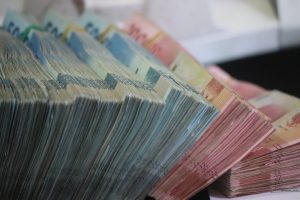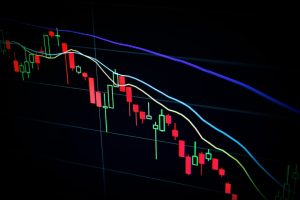The foreign exchange market, or forex market, is the largest and most liquid market in the world. It is known for its fast-paced and dynamic nature, with currencies constantly fluctuating in value. However, over the past year, the forex market has experienced a significant slowdown in activity. This has left many investors and traders wondering why the market has been so slow, and what the implications of this slowdown may be.
There are several factors that have contributed to the forex market’s slowdown over the past year. One of the primary factors is the ongoing COVID-19 pandemic. As the pandemic has spread across the globe, it has caused significant disruptions to the global economy. Many countries have implemented strict lockdown measures, which have led to reduced economic activity and slowed down trade flows. This has had a knock-on effect on the forex market, as currencies have been impacted by the changing economic conditions.
Another factor that has contributed to the forex market’s slowdown is the changing geopolitical landscape. In recent years, there have been a number of significant geopolitical events that have impacted the forex market. These events have included Brexit, the US-China trade war, and the US presidential election. However, over the past year, there have been fewer major geopolitical events, which has led to a reduction in volatility and trading activity in the forex market.
In addition to these factors, there has also been a general trend towards lower volatility in the forex market over the past few years. This is partly due to changes in market structure and the increasing use of algorithmic trading strategies. These strategies are designed to exploit small price movements in the market, and they tend to dampen volatility by quickly buying or selling currencies in response to small changes in price.
So, what are the implications of the forex market’s slowdown? One of the most significant implications is that it has made it more difficult for traders and investors to make money in the market. When the market is slow, there are fewer opportunities to take advantage of price movements, and profits are generally smaller. This has led to a reduction in trading volumes and a decrease in liquidity in the market.
Another implication of the forex market’s slowdown is that it has made it more difficult for central banks to implement monetary policy. When the market is slow, it is more difficult for central banks to influence the value of their currencies through interest rate adjustments or other policy measures. This can make it more challenging for central banks to achieve their inflation targets and support their economies.
In conclusion, the forex market has experienced a significant slowdown over the past year due to a variety of factors, including the COVID-19 pandemic, the changing geopolitical landscape, and a general trend towards lower volatility. This slowdown has had a number of implications for traders, investors, and central banks, and it is likely to continue in the coming months. While the forex market may be slow at the moment, it is important to remember that it is a dynamic and constantly evolving market, and that conditions can change quickly. As such, traders and investors should remain vigilant and be prepared to adapt to changing market conditions.






